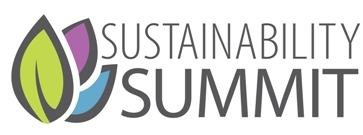Lesego Hlalethwa
T he global drive to achieve carbon neutral industries, mitigate climate change and reverse environmental impacts make a strong business case for industrial parks to transition to greener and eco-friendly spaces. The sustainability of these spaces can advance South Africa’s reindustrialisation while fostering economic growth and investment attraction.
Supported by collaborative work between the Department of Trade, Industry and Competition (the dtic), the United Nations Industrial Development Organization (UNIDO) with funding from the Swiss State Secretariat for Economic Affairs (SECO), the National Cleaner Production Centre South Africa (NCPC-SA) implemented the first phase of the Global Eco-Industrial Parks Programme (GEIPP) in South Africa. The GEIPP Phase I launched on Dec 2020 in three pilot parks: Phuthaditjhaba, Ekandustria, and East London Industrial Development Zone (ELIDZ). In this phase, the NCPC-SA and UNIDO conducted capacity-building workshops, Resource Efficient and Cleaner Production (RECP) assessments, park benchmarking, and knowledge-sharing forums that have since assisted the park managers with identifying decarbonisation and cost-saving opportunities.
Opportunities identified through the GEIPP interventions The identified opportunities enable the parks’ transition to eco-industrial parks by evaluating their performance against international EIP framework measures. The performance benchmark scoring considers the park’s economic, social, environmental, and management performances. In practice, managing resources such as water, energy and enhanced circularity and synergies within the parks, plays a critical role in improving their performance.
In 2020, the ELIDZ was the highest-performing industrial park, achieving a score of 80% against the performance benchmarks and improved to 82% in 2022. Phuthaditjhaba Industrial Park scored 31% in 2020 but improved to 43% in 2022. The park managers highlighted that they had identified significant opportunities through the programme.
Among these, were promoting circular economy synergies between tenant companies, deploying renewable energy sources to improve energy security, and setting up internal wastewater treatment plants to help attract investment to the parks while benefiting the surrounding communities.
In addition to advancing the work that kicked off in phase I of the GEIPP, phase II will expand to additional parks, facilitate gender mainstreaming, explore green projects implementation funding options and ramp up capacity building.
Industrial parks and companies interested in learning more about the programme can contact the NCPC-SA at ncpc@csir.co.za.
About the Global Eco-Industrial Parks ProgrammeThe GEIPP is implemented by UNIDO in seven countries through funding from SECO and executed by local NCPC’s in participating countries. The programme seeks to assist industrial parks in achieving enhanced environmental, economic, and social performance through collaboration and resource management, rendering the parks more competitive and sustainable. The programme also enhances the work of the dtic’s Industrial Parks Revitalisation Programme (IPRP) while supporting the National Development Plan (NDP) 2030, which aims to eliminate poverty and reduce inequality by 2030.

